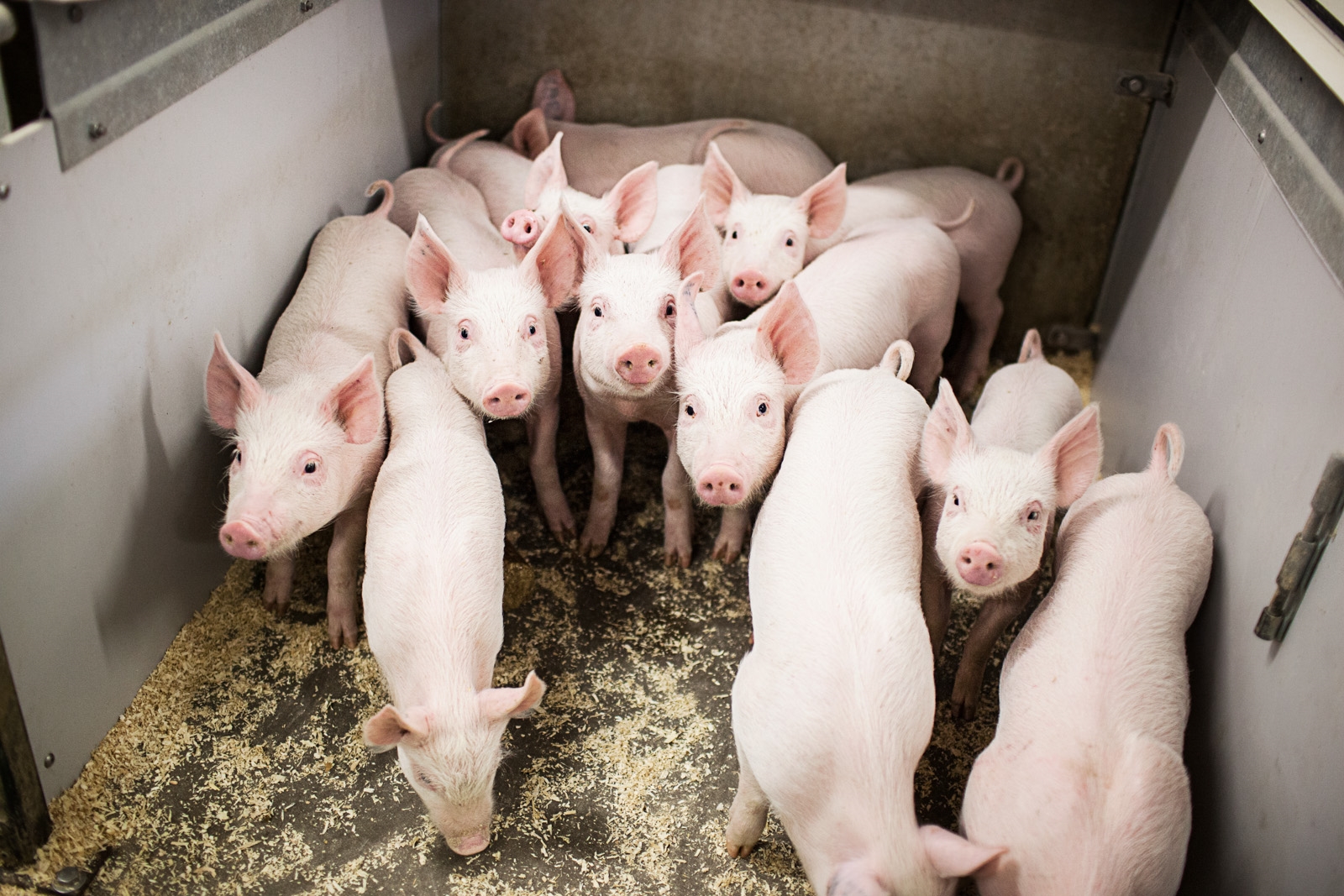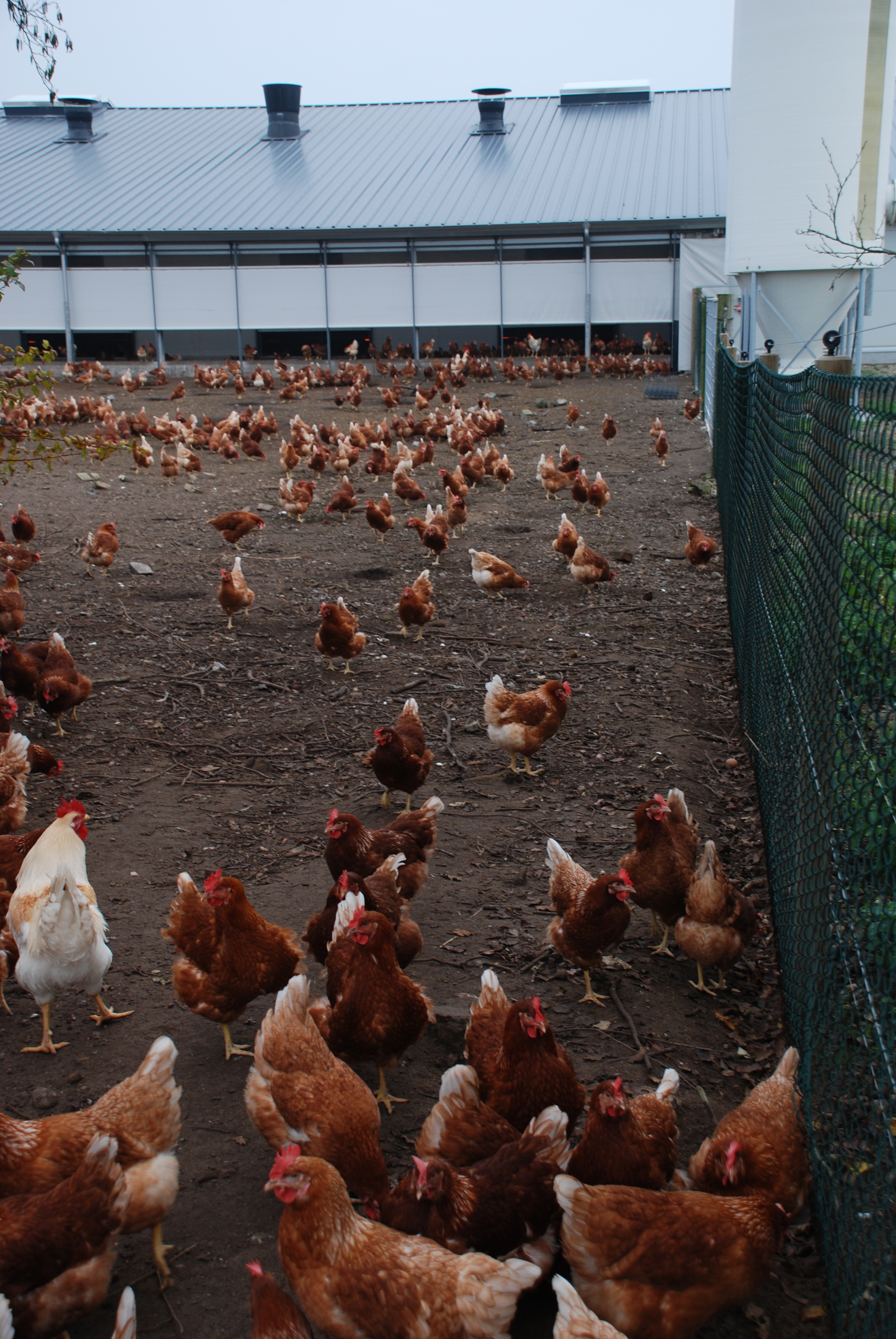Sustainability of livestock production - the focus of the EU Feed-a-Gene project
A large and ambitious EU project will be looking on ways to increase the efficiency and sustainability of pig and poultry production. This is to be achieved by developing new feeds, feeding technologies and management systems and by the selection of more robust and adaptable animals.


When representatives from research, agriculture and the industry met in Foulum in April, it was in order to present and discuss the activities in the EU project Feed-a-gene. At the event the stakeholders, potential users of the results, were given the opportunity to provide feedback on the work and to adjust their expectations to the results of the project.
The background for the project is that the global demand for livestock products continues to rise, particularly because of rapid population growth and a greater purchasing power of consumers. According to FAO, there are currently no viable alternatives to intensive livestock production that can meet this demand. Monogastric animals (pigs and poultry) are the main source of animal products. However, it is necessary to address the competition between feed, food, fuel and environmental concerns caused by this livestock production. There is a need to develop new solutions in order to increase the efficiency and sustainability of livestock production systems.
Greater efficiency – smaller environmental impact
The Feed-a-gene project therefore aims to improve monogastric livestock production systems (pigs, poultry and rabbits) in order to increase overall efficiency and reduce the environmental impact. The project will develop new and alternative feeds and feeding technologies, identify and select animals that are more adaptable to changes in conditions, and develop feeding techniques to optimise the potential in both the feed and the animals.
Research at Aarhus University
The part of the project headed by Knud Erik Bach Knudsen from the Department of Animal Science, Aarhus University, will be looking at areas such as alternative feed protein ingredients including high-quality protein from green biomass, developing analytical methods for real-time characterisation and identifying new animal traits in order to establish new feeding and breeding regimes. Due to the variation in livestock traits in the production systems, there is a large potential in improving efficiency by tailoring nutrients in the feed to animal needs.
The diversity in the livestock can also be used to breed more efficient and robust animals. New technologies, including LC-MS based metabolomics – a technique for analysing metabolites/degradation products in biological samples, mean that it is possible to identify variations in animal genetic makeup and thus get a detailed look into the biological mechanisms for the animal’s and its gut microbes’ utilisation of nutrients. This can form the basis for an early and accurate selection process and significantly increase the selection efficiency.
The project addresses different types of livestock production systems including different stages and types of production animals; e.g. pregnant sows, lactating sows and fattening pigs in pig production, and broilers and layers in poultry production. It also includes different production systems and conditions, ranging from conventional systems to more alternative high-welfare systems. The project also, finally, includes a comparison of different livestock breeds and sustainability aspects.
Five-year project
Feed-a-gene is a project coordinated by INRA (France), which involves an international consortium consisting of 23 public and private partners from Europe and China. The project has a duration of five years from 2015-20 and has a budget of €9 million. It is financed by the ”EU Framework Programme for Research and Innovation Horizon 2020”.
Read more about the project here.
Read more about the Stakeholder Day here
Further information
Professor Knud Erik Bach Knudsen
Department of Animal Science, Aarhus University
E-mail: knuderik.bachknudsen@anis.au.dk
